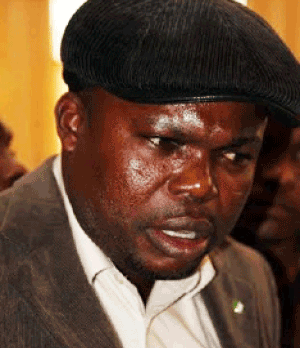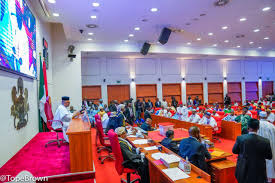Ebikabowei Victor-Ben, popularly known as General Boyloaf, was profiled as having the most organised militant camp during the Niger Delta crisis that culminated in the declaration of amnesty by the government of the late President Umaru Musa Yar’Adua. His bombing of Shell’s Bonga Oil field was a game-changer that altered the dynamics of the Niger Delta struggle and made the government and the oil firms change strategy in addressing the Niger Delta crisis. From the creeks to becoming the Chairman of Bayelsa State Centre for Youth Development, Boyloaf, in this interview, speaks, among other salient national issues, the national conference…
Is the on-going national conference a step in the right direction?
Ebikabowei Victor-Ben
For me, it is better for Nigerians to jaw-jaw than to war-war. To that extent, the national conference is a good step to reduce the obvious tension in the country. It is for the participants to make the best use of the conference to further the unity of the country. It is also for them to use the opportunity to prove sceptics wrong on the value of the conference to the country at this time. To answer the second part of your question, the outcome of the conference will determine if it is after all a step in the right direction.
Do you think 2015 will be like any other election?
My honest take on the 2015 election is that democracy should be further strengthened in Nigeria. The electoral space should be opened to all intended aspirants; there should be no limitation. Independent National Electoral commission (INEC) must be seen to be fair and just. Once these are in place, I feel Nigerians will have a positive perception on the election. No two elections will ever be the same, because of the dynamism of society. But this 2015 election will be the most challenging and definitive.
What is your reaction to Usman Bugaje’s statement that there is no oil-producing state, and that oil in the Niger Delta belongs to the North? Don’t you think his statement is a prelude to genocide against our people, the Niger Deltans?
It is a laughable statement, mischievous and a statement of fallacy. People like Usman Bugaje are the problem we have in this country; such people, once they are no more in government, all they do is cause confusion, by making irresponsible statements and fan the embers of discord between the ethnic nationalities, instead of strengthening our unity. Let me ask Bugaje: if there is oil spill, like there has always been in the Niger Delta, whose livelihood is affected? Whose environment is degraded? Is it the nearby community or Bugaje’s village in Katsina that feels the impact? Nigerians are now wise and can discern. We are not losing sleep over Bugaje’s irresponsible statement, because most Northerners do not think the way he does.
The Niger Delta struggle is now hibernating. Supposing Nigerians did not get it right at the conference, will the militants resume hostilities?
History has a way of repeating itself. But we hope and pray that the history of the violent Niger Delta struggle does not repeat itself.
Do you think there are men of goodwill in Jonathan’s government?
Most people in government work to impress their principal. As far as goodwill is concerned, Jonathan became president on the immense goodwill of the Nigerian people. I believe it is the duty of his aides to sustain that goodwill. How well they have done; that is not for me to judge. I don’t want to comment on the people in Jonathan’s government.
How do you see President Jonathan’s attitude towards the amnesty programme?
President Jonathan’s attitude to the amnesty programme can best be described as warm and cordial. He is a firm believer in the ideal of the amnesty declaration and he has been implementing it diligently. Remember, he was the vice president when the declaration was proclaimed and he was part of those that brought the amnesty to life. Honestly, we cannot expect more from him than he has done so far.
What is your assessment of the security challenges, especially of Boko Haram, and how government has responded so far?
It is difficult to have a final opinion; it is a matter that is still evolving. But my personal take on Boko Haram is akin to when we wish for something, or create a scenario, when it becomes so big, it may most likely go out of the creators’ or instigators’ control, as those with other objectives and agenda may run with it and give it a life of its own. For a reactionary movement trying to propagate its own brand of Islam to a political mechanism with the goal of challenging the enthronement of a minority president, Boko Haram has assumed the status of an international terror organisation. The political upheavals in the Maghreb region also contributed, because arms and soldiers of fortune suddenly found a new territory to do business, having been pursued from their hitherto bases and theatre of war. Boko Haram has effectively kept our security agencies busy in the last four years or so. The entire North East, particularly Borno and Yobe states, is dead socially and commercially; there is no growth there! Meanwhile, the other regions are in relative peace and growth; no matter how small. So whose fault is it and who is to blame? I don’t want to blame anyone, but no government will be happy to have such a crisis. So, the federal and state governments should stop blaming each other and unite to face the common enemy.
In what ways can we address Nigeria’s security challenges for sustainable peace and development?
Security is a very expensive enterprise, and it is unfortunate that politicians who are in charge of our national treasury do not understand this fact. The peace we are currently enjoying in the Niger Delta came at a great cost, both in terms of money and human lives. This is so when we have social and economic disequilibrium in the country. Government must continue to invest massively in social and economic projects that will ameliorate poverty; real projects that will not be hijacked by vested interests and politicians, like they hijacked the amnesty programme. If this is sustained for a period of about 20 years, the disequilibrium in our societies will reduce gradually to a reasonable and manageable proportion.
Do you not think Boko Haram is about politics and for Jonathan being there as the President of the Federal Republic of Nigeria?
So many people in the Niger Delta area are of this opinion, and they hold on to it very strongly. Many times I have been confronted with this question, and my response has always been ‘time will tell’. It will be unfortunate for Nigeria if the Boko Haram nonsense does not stop now, given all the approaches already taken by government. If it outlives the Jonathan administration and suddenly loses tempo and intensity whenever power transmits to another region, that day I pray never comes; but if it does, it will be unfortunate for Nigeria, because some people will draw conclusion and may likely react.
And do we need to politicise security?
We necessarily don’t have to, but can we really draw a line between security and politics? The laws as at today place the security agencies effectively under the control of politicians whose stock-in-trade is politics. Politicians see and analyse everything through the eyes of politics.
How do you advise or urge the citizens to push for peaceful co-existence and good leadership in the country?
The ongoing national conference is the best avenue for Nigerians to arrive at a national consensus. With a binding national consensus, Nigeria can start to dismantle those cleavages that divide us and strengthen those bondS that unify us as people with a common heritage spanning 100 years.
Would you compare or equate the Boko Haram struggle or crisis to that of the Niger Delta?
No. there is no basis for comparison. If there is a basis, the template used in addressing the Niger Delta debacle would have been used to address the Boko Haram madness. But as you can see, it has been tried and it failed. So they are far and wide apart.
The remains of General John Togo of the Niger Delta Liberation Force (NDLF) is still under security surveillance and guard at the Warri General Hospital. What effort are the ex-militants making to bring him home for heroic burial?
Let us put it into proper perspective, for the sake of history, events that led to the death of John Togo. He served in my camp and, after the amnesty which he took, I personally took him to Delta State Government House and got him introduced to Dr. Emmanuel Uduaghan, his state governor. He severally complained about some unfulfilled expectations about the amnesty programme and I always tell him to be patient. But some of our boys think that the federal government has given us a blank cheque, and that, as leaders, we have unlimited access to the treasury, forgetting that the Niger Delta struggle is and was a combination of effort and resolve of people. Some of them, in violation of their amnesty oath, went back to the creeks and sought to re-open the crisis. The outcome is what it is, though unfortunate. People must know that they will be responsible for their actions. Therefore, I urge all our youths to be patient and work with their leadership and the government. The Niger Delta struggle is not a one-man struggle, and it is not a struggle that is undertaken without the blessing and support of the people and the gods. As for heroic burial, it is for the Niger Delta people to determine if he merits a heroic burial or if he is to be considered a Niger Delta hero.













